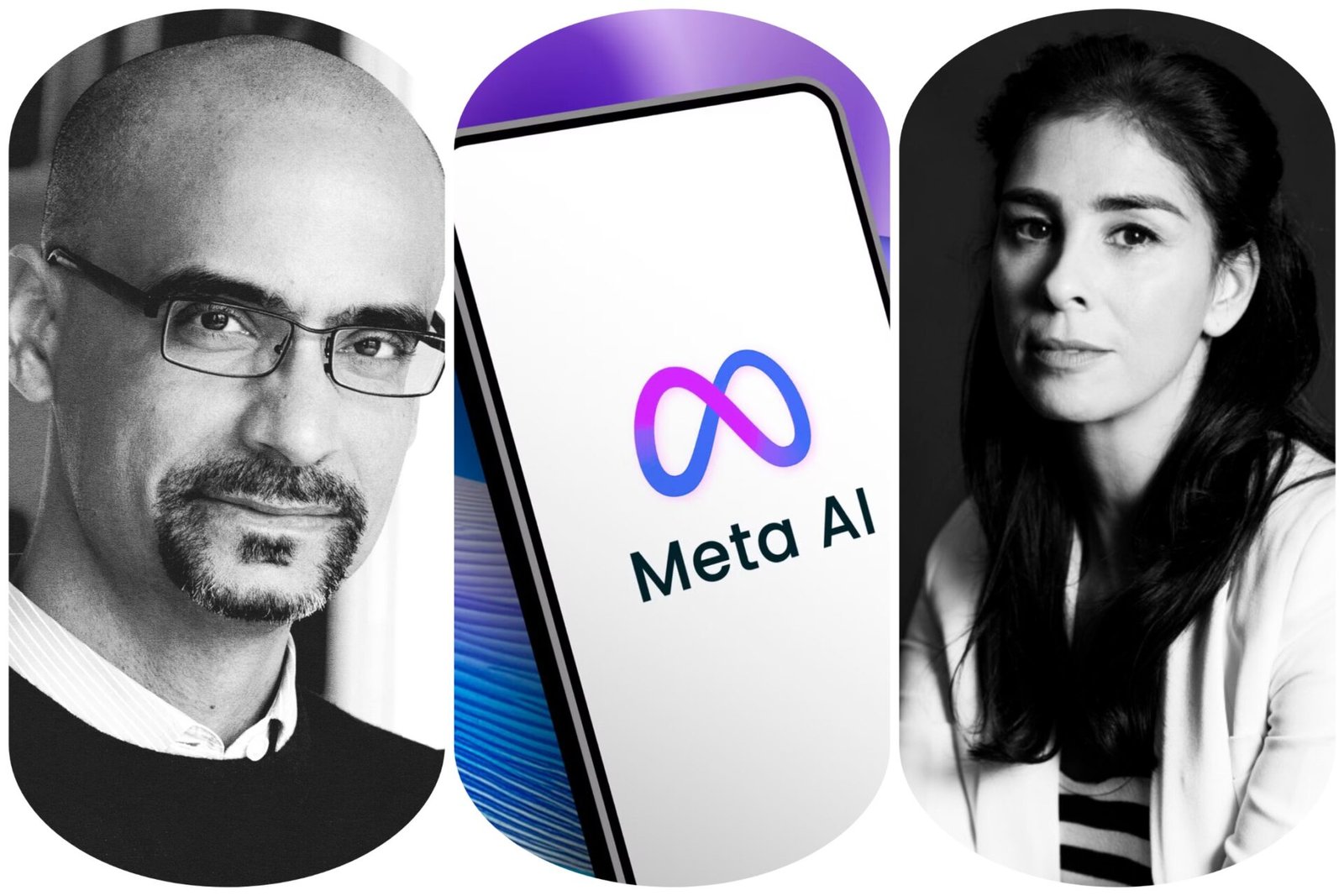Sarah Silverman, Junot Díaz, and other authors lose key copyright claim in court ruling with ripple effects for generative AI
In a ruling that’s either a win for innovation or a gut punch to the literary class (depending on who you ask), a federal judge has determined that Meta’s use of copyrighted books to train its AI model LLaMA qualifies as “fair use.”
On Wednesday, Judge Vincent Chhabria dismissed a lawsuit brought by 13 authors — including Sarah Silverman, Junot Díaz, Ta-Nehisi Coates, and Laura Lippman — that accused Meta of copyright infringement for using a shadowy cache of books to teach its AI to write. According to the suit, the books were sourced from so-called “shadow libraries” (read: pirated PDFs), allegedly obtained via BitTorrent. Meta didn’t deny it trained on the works — but the court decided it didn’t matter.
“The court ruled that AI companies that ‘feed copyright-protected works into their models without getting permission… are generally violating the law,’”
the authors’ law firm Boies Schiller Flexner said in a statement,
“Yet, despite the undisputed record of Meta’s historically unprecedented pirating of copyrighted works, the court ruled in Meta’s favor.”
That’s not exactly the full story. While the court acknowledged that scraping copyrighted works for profit could raise serious questions, it found that in this specific case, the LLaMA model’s outputs were too short — less than 50 words — and too transformed to count as copy-paste piracy. The judge emphasized that the ruling should not be read as a sweeping greenlight for all AI training on copyrighted material.
In other words, Meta won on a technicality, but the door is far from shut.
The 50-Word Loophole

At the heart of the case was a surprisingly granular question: Can Meta’s model spit out large chunks of authors’ books verbatim? According to expert testimony, it can’t — or at least it doesn’t. The plaintiffs’ own expert admitted that LLaMA doesn’t reproduce any “significant percentage” of the works, even when prompted with adversarial tricks designed to force it.
That was enough for Judge Chhabria, who ruled the model “transformative” and the use “fair.” And since none of the authors could prove that Meta’s data-munching adventure actually hurt their book sales, the court found there was no economic damage either.
“Meta introduced evidence that its copying hasn’t caused market harm,” Chhabria wrote. “The plaintiffs presented no empirical evidence to the contrary… All the plaintiffs presented is speculation.”
A Win for Meta, Not a Precedent for All

Still, the ruling came with caveats. Chhabria pointedly noted that using copyrighted material to mass-produce cheap knockoffs might not qualify as fair use in other scenarios. And he declined to rule on whether Meta’s alleged BitTorrent harvesting of shadow libraries violated copyright in the acquisition process — meaning that part of the lawsuit lives to fight another day.
“In the grand scheme of things, the consequences of this ruling are limited,” Chhabria wrote. Yet this marks the second win this week for AI companies under fire, following a similar ruling in favor of Anthropic and its Claude model.
For now, Meta is basking in the moment. “We appreciate today’s decision from the Court,” a spokesperson said. “Fair use of copyright material is a vital legal framework for building this transformative technology.”
Transformative, yes. But to authors watching their work scraped, segmented, and sublimated into chatbot slurry, the victory may feel more like a warning shot than a legal clarification.
The plaintiffs have not yet said if they’ll appeal. But in the court of public opinion — especially among creatives — this won’t be the last chapter.
The Torrenting Question Remains

Meta may have won on fair use, but how it got the books is still under legal review. There’s no dispute that Meta torrented files from shadow libraries like LibGen and Anna’s Archive. What’s unclear is whether Meta also uploaded that data — either through leeching or seeding — which could count as unlawful distribution.
Judge Chhabria didn’t rule on that issue. A separate case management hearing is set for July 11 to decide how to proceed. So while Meta is off the hook for using the books, how it got them could still land it back in court.
